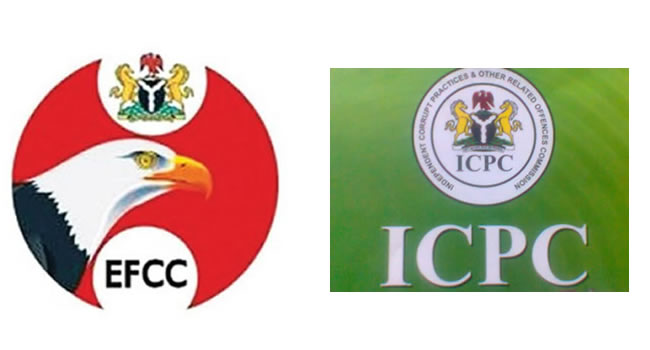Digital television, corruption and anti-graft agencies
One of the greatest challenges in the war against corruption is the development of corruption and sloppiness within the agencies charged with the struggle such as the anti-corruption agencies themselves – the Independent Corrupt Practices and other related offences Commission (ICPC) the Economic and Financial Crimes Commission (EFCC) as well as the police and judiciary. […]

One of the greatest challenges in the war against corruption is the development of corruption and sloppiness within the agencies charged with the struggle such as the anti-corruption agencies themselves – the Independent Corrupt Practices and other related offences Commission (ICPC) the Economic and Financial Crimes Commission (EFCC) as well as the police and judiciary. This was what the former Chairman of the EFCC, Nuhu Ribadu called “corruption fighting back.”
A few weeks ago, I was surprised to read a newspaper report that my good friend, Ishaq Modibbo Kawu was being investigated over an alleged N2.5bn fraud levelled against him and the organization he heads as Director-General, the Nigerian Broadcasting Commission. According to the spokesperson of the ICPC, Mrs. Rasheedat Okoduwa, the money involved was a grant released to the agency by the Federal Government for its digital switch-over programme. The report said that the Presidency had in 2016 released N10bn to the Ministry of Information and Culture for the digital switch-over programme: “which entails migration of telephone lines from analogue to digital platforms and a White Paper was issued directing that the process be specifically handled by government-affiliated companies.” The “migration of telephone lines” was the first indicator that the story was dubious. I knew the digital migration was about radio and television not telephones.
The specific allegation by the ICPC against Mr. Kawu was that he fraudulently recommended a private company, Pinnacle Communications Limited, to the Minister of Information and Culture, Lai Mohammed, for the release of the money against the guidelines contained in the Government White Paper for the Digital Switch-Over. The statement added that the said company, Pinnacle, had no experience in the sector and that Kawu paid all these monies to them knowing they could not deliver. Finally, the spokesperson for ICPC alleged that the NBC DG during interactions with the commission could not justify why the government White Paper was flouted leading to the release of money to an unqualified company.
The story broke during the party primaries and I could not get Modibbo Kawu for some time as he was engaged in the primaries contest. When I finally caught up with him, he was enraged with the idea that he disregarded the guidelines in the Government White Paper and that he could not explain himself. The contract for the digital switch-over was advertised in 2012 and finally awarded in 2014 to Pinnacle as the private distributor, while the Nigerian Television Authority got the second slot for its affiliate company ITS as directed by the Whitepaper. The whole process was therefore carried out when Emeka Mba was D-G of NBC, while Mr. Kawu’s appointment came in 2015 after the elections.
The allegation that Pinnacle Communications has no experience in the industry is without foundation as they have established radio and television houses for over ten state governments over the past two decades. It is interesting that after ICPC closed their accounts, the Federal High Court sitting in Abuja two weeks ago ordered ICPC to unfreeze the account and counselled anti-corruption agencies of government against taking drastic action that could prevent private enterprises from flourishing prior to concluding investigations to justify such action.
Delivering his ruling in the case instituted against ICPC by Pinnacle Communications Limited for instructing Zenith Bank to freeze its account, Justice Nnamdi Dimgba maintained that the anti-corruption war was as beneficial to the society as flourishing private enterprises, pointing out that scuttling the operations of major private organizations like Pinnacle Communications Limited also sent negative signals to the international community about Nigeria’s business environment. Justice Dimgba described ICPC’s action against Pinnacle Communications Limited as “an overkill just like using a sledgehammer to kill a fly” considering that even after six months since the case was instituted and despite leeway provided by many adjournments by the court, ICPC could not file any charges against the company, emphasizing that it should not have frozen the account without establishing a prima facie against it.
The digital switch-over is an important transition in Nigerian mass communications as it would allow ordinary people who cannot afford pay TV to have access to hundreds of television channels free. It would also revolutionise the industry by separating content from distribution. Currently, television production is extremely expensive because each television station has to set up towers and set up expensive equipment to transmit its programmes. With the digital transition, all television stations need to do is produce their programmes, which would all then be distributed by the two companies commissioned to do so. The cost of radio and television production would therefore crash opening the industry to new actors with limited financial resources. The Digital Switch-over for the Federal Capital Territory took place in 2016 and Kaduna transited in 2017 while many more states would join over the coming months. It is therefore important that the roll-out process be allowed to continue as planned.
According to Transparency International guidelines, anti-corruption agencies must be independent and must have full powers to investigate, arrest and prosecute suspects. They must be allowed full freedom to discharge their legal mandate impartially, without interference from any quarters. At the same time however, there must be an independent oversight mechanism to monitor their functions and practices to ensure that they do not abuse their powers. Anti-corruption agencies must lead by example and ensure that their officials and staff practice proactive disclosure of assets, undertake public reporting of their activities and guarantee public access to information.
